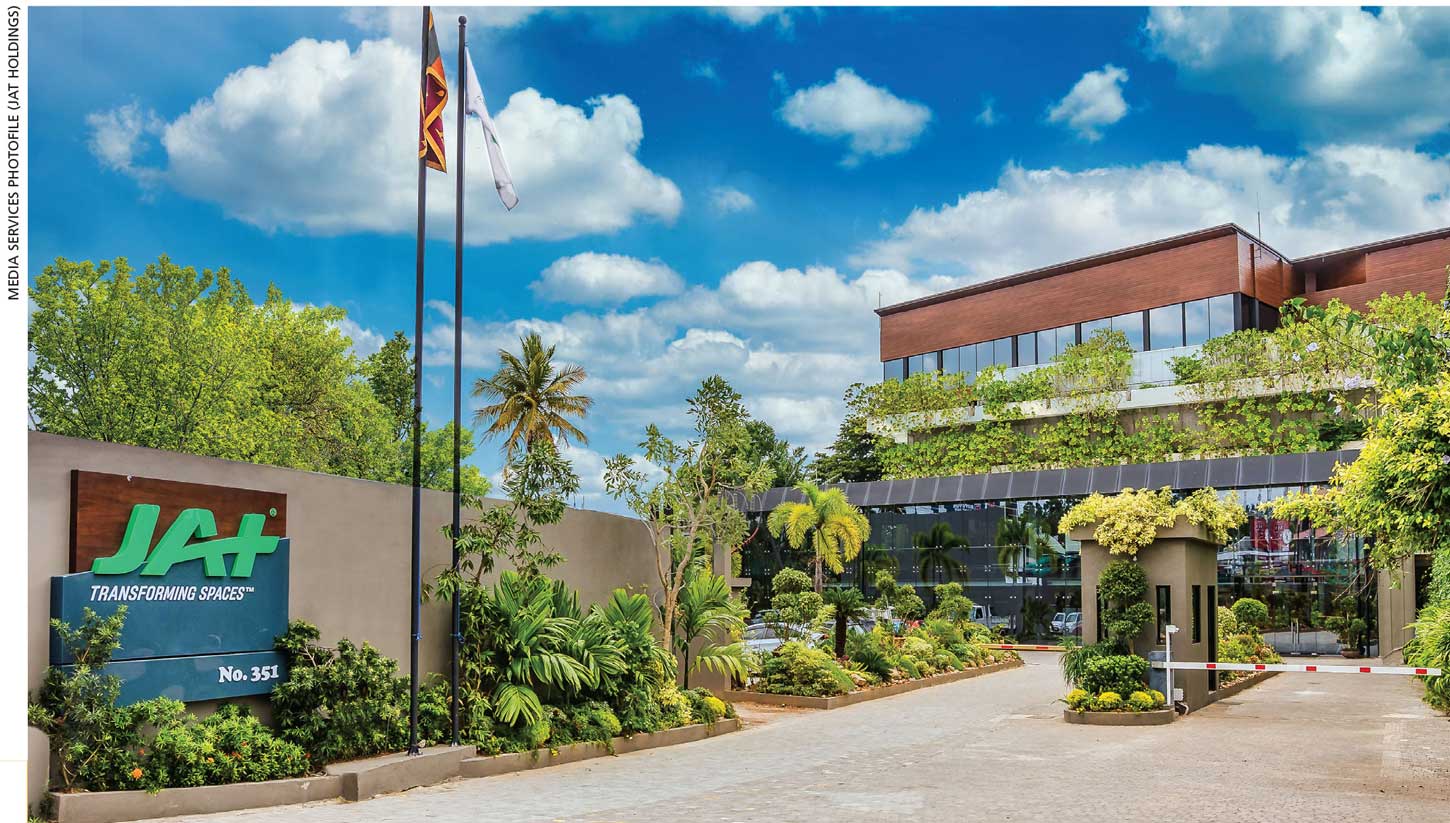LMD 100 Q&A
JAT HOLDINGS
Q: How can Sri Lanka improve its competitiveness on the international stage?
A: It is imperative to remove the standard roadblocks – bureaucracy, political interference and inefficiencies in government organisations – and ensure consistency in policies to create an overall business friendly environment that could attract investors.
Sri Lanka is also known for turning away legitimate investors when they do not fall in line with certain requests of policy makers and bureaucrats. The government is known to not pay businesses that have invested in Sri Lanka and supplied for or contracted with the government.
The legal system does not help to resolve these problems and leaves private businesses having to write off large sums of debt to the government. Therefore, it would be prudent to privatise most public institutions, lower interest rates and reduce taxation, whilst widening the tax net.
We can see several foreign enterprises closing down and leaving the country while the local industry is left gasping for air or being forced out of business. The inflation in Sri Lanka is caused mainly due to devaluation of the rupee and not because of increased demand. Therefore, increasing interest rates will destroy business.
Sri Lanka should also tap into its natural resources such as graphite, ilmenite and phosphate to emerge from this crisis whilst uplifting local industries.
Q: How is your group faring under the existing macroeconomic conditions?
A: One of our biggest strengths is that we enjoy a positive net cash position due to good financial discipline. The management’s strategic planning in balancing local operations and international market expansions have successfully helped sustain the company while enjoying steady growth.
We take pride in the manner in which we have looked after our employees through the Easter attacks, a pandemic, lockdowns and economic meltdowns. While not cutting down on any employees and giving them their usual annual increases, we added an additional 17 percent to their package as a cost-of-living allowance for the first time ever this year and have linked 20 percent of their remuneration to the US Dollar.
We believe that if we take care of our team, they would take care of our customers, helping the company to grow.
Given today’s adverse economic conditions – depreciation of the local rupee, increase in overall costs, inconsistent taxation and restriction on imported products – we are looking at diverse industries in foreign markets to maintain our forward momentum.
Q: How do you view your prospects in regional and global markets?
A: Understanding that regional and global markets will go through ups and downs, we look positively at opportunities and new markets.
Enjoying a good position regionally with over 20 years’ experience outside of Sri Lanka, we are further expanding in Bangladesh, India and the Maldives. Equipped with the right experience, expertise and quality products, we are very well positioned to enter other global markets. Using e-commerce will enable access to our brands around the world. Therefore, we consider ourselves as a global business and not merely a South Asian or Sri Lankan entity.

Founder
Managing Director
Q: How does your group ensure that organisational performance and environmental sustainability go hand in hand?
A: From building an environment conscious green building as our head office to managing most of our energy requirements from renewable solar power, all businesses we undertake are environmentally sustainable.
We have converted the wood finishing industry in Sri Lanka from a pure solvent-based coatings market to a volatile organic compound (VOC) free, water-based coatings market. WHITE by JAT emulsion has the highest opacity with the lowest VOC in the market.
This means that when WHITE by JAT interior and exterior emulsion is used, one consumes the least amount of paint with the lowest VOC. All our products are free of heavy metals.
‘Petal Paint’ is one of our key initiatives where we take flowers offered by devotees to temples without letting them be discarded and cause pollution, and use the pigment in the flowers to make natural pigmented paint. Then the paint is donated back to the temples to restore faded paintings and murals there.
JAT ensures that all business processes continuously evolve to reduce their environmental impacts, ensuring that our
operations sustain people, profit and the planet.
Sri Lanka should also tap into our natural resources such as graphite, ilmenite and phosphate to emerge from this crisis whilst uplifting local industries
Telephone 4407700 | Email info@jatholdings.com | Website www.jatholdings.com






